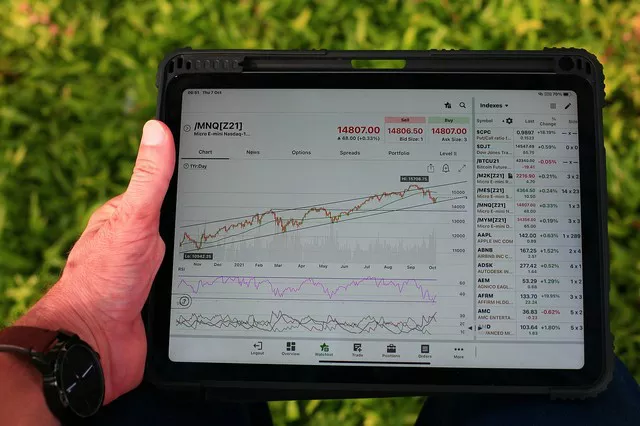DJIA futures, also known as Dow Jones Industrial Average futures, are financial derivatives that allow traders to speculate on the future movements of the DJIA index. The DJIA is a widely recognized stock market index composed of 30 large, publicly traded companies listed on U.S. stock exchanges. In this article, we will explore DJIA futures in detail, covering their definition, trading process, benefits, and considerations for market participants.
Definition and Basics
DJIA Index:
Composition: The DJIA consists of 30 major companies representing various sectors of the U.S. economy, including technology, finance, healthcare, and consumer goods.
Price-Weighted Index: The DJIA is a price-weighted index, meaning that the component stocks with higher prices have a greater impact on the index’s movements.
DJIA Futures:
Derivative Contracts: DJIA futures are financial contracts that derive their value from the DJIA index.
Future Delivery: Unlike stocks, DJIA futures are settled at a predetermined future date, with participants agreeing to buy or sell the underlying index at a specific price.
Trading Process
Contract Specifications:
Contract Size: Each DJIA futures contract represents a specific dollar value of the DJIA index.
Expiration Date: DJIA futures contracts have specified expiration dates, usually falling on the third Friday of the contract month.
Tick Size: DJIA futures have a tick size, which is the minimum price increment for trading, typically expressed in index points.
Market Participants:
Hedgers: Hedgers, such as institutional investors and market participants with exposure to the broader stock market, use DJIA futures to hedge their portfolios against potential market downturns.
Speculators: Speculators seek to profit from price movements in the DJIA index without necessarily owning the underlying stocks, taking advantage of leverage and market fluctuations.
Arbitrageurs: Arbitrageurs exploit price discrepancies between DJIA futures and the underlying cash market to capture profit opportunities through simultaneous buying and selling.
Trading Platforms and Hours:
Exchange-Traded: DJIA futures trade on established exchanges, such as the Chicago Board Options Exchange (CBOE) and the Chicago Mercantile Exchange (CME).
Electronic Trading: Most DJIA futures contracts are traded electronically, providing accessibility to traders worldwide.
Trading Hours: DJIA futures trading hours typically extend beyond regular stock market hours, allowing for extended trading opportunities.
Benefits of DJIA Futures
Portfolio Diversification:
Broad Market Exposure: DJIA futures provide exposure to a diverse range of industries and sectors, allowing traders to gain broad market exposure in a single trade.
Risk Mitigation: Investors can use DJIA futures to hedge their existing stock portfolios, mitigating potential losses during market downturns.
Leverage and Margin Efficiency:
Leverage: DJIA futures allow traders to control a larger notional value of the index with a smaller initial investment, magnifying potential gains or losses.
Margin Efficiency: Margin requirements for DJIA futures are typically lower than those for trading individual stocks, allowing traders to allocate capital more efficiently.
Speculative Opportunities:
Volatility Trading: DJIA futures present opportunities for speculators to profit from price volatility and short-term market movements.
Short-Selling: DJIA futures allow traders to take short positions, profiting from downward price movements in the index.
Considerations for Market Participants
Risk Management:
Volatility and Losses: DJIA futures trading involves risks, including potential losses due to market fluctuations and unexpected events.
Risk Assessment and Hedging Strategies: Traders should assess their risk tolerance and develop appropriate risk management and hedging strategies.
Market Analysis:
Fundamental and Technical Analysis: Successful DJIA futures trading often involves a combination of fundamental analysis, considering economic indicators and company news, and technical analysis, examining historical price patterns and trends.
Market News and Events: Traders should stay updated on market news, economic releases, and geopolitical events that can influence the DJIA index.
Conclusion
DJIA futures offer traders an avenue to speculate on the future movements of the DJIA index, providing opportunities for hedging, diversification, and speculative trading. Understanding the basics of DJIA futures, the trading process, and the benefits they offer empowers market participants to make informed decisions and navigate the dynamic world of financial markets. However, it is essential to recognize the associated risks and conduct thorough market analysis to maximize the potential benefits of DJIA futures trading.


